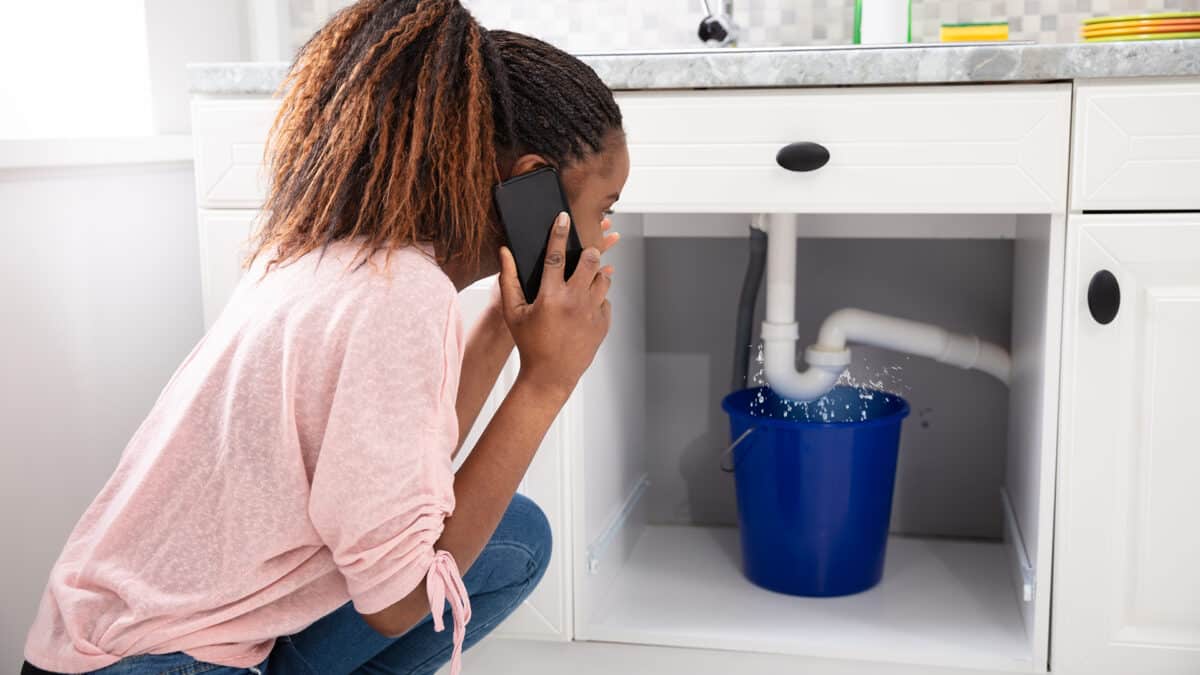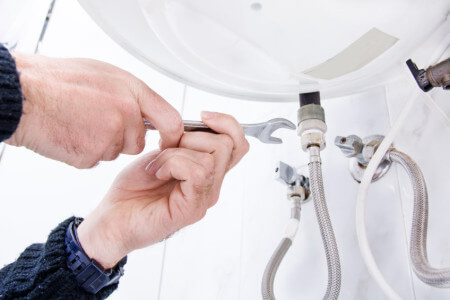How to Manage Urgent Pipe Problems with Temporary Solutions Until Help Arrives
Visit My WebsiteJust how do you really feel with regards to Plumbing Emergencies: Tips on What To Do Before?

Pipes emergencies can strike at any moment, creating tension and possible damage to your home. Whether it's a ruptured pipe, a clogged up drain, or a dripping faucet, understanding just how to manage the scenario until an expert plumber shows up can conserve you from more problems. This article supplies important emergency situation plumbing suggestions to help you alleviate damage and gain back control during a pipes crisis.
Shut off the Water Supply
The primary step in any kind of plumbing emergency situation is to turn off the water. For localized concerns, such as a leaking tap or toilet, shut off the shutoff near the fixture. When it comes to a major leak or ruptured pipe, find your home's main water shut-off valve and transform it off instantly. Knowing the place of these shutoffs beforehand can conserve beneficial time during an emergency situation.
Turn off Your Hot Water Heater
In specific emergency situations, such as a ruptured pipe, it's wise to shut down your water heater. This avoids getting too hot or damages to the unit when water quits moving. Shut off the power supply to the water heater (electrical or gas) and let it cool down to prevent potential hazards.
Momentarily Stop a Burst Pipeline
A burst pipeline can result in significant water damages in minutes. To mitigate the issue:
Call an expert plumbing professional right away to resolve the problem permanently.
Have an Emergency Situation Plumbing Set
Prepare a standard plumbing emergency package to handle minor concerns effectively. Your set needs to include:
Having these tools handy can make a substantial difference in your capability to take care of emergency situations.
Unclog Drains Safely.
A blocked drainpipe can be an irritating and unpleasant issue. Right here's exactly how to tackle it:.
If these approaches do not work, avoid utilizing too much pressure, as it might worsen the obstruction.
Handle Overflowing Toilets.
An overruning commode can create immediate turmoil. Below's what you ought to do:.
Address Little Leakages with Temporary Solutions.
Small leaks can rapidly end up being substantial troubles if left unchecked. Use these temporary repairs up until professional aid gets here:.
While these repairs aren't long-term, they can assist reduce water loss and damage.
Take Care Of Frozen Piping Thoroughly.
In colder climates, icy pipes are a common emergency. If you believe an icy pipe:.
Know When to Call an Expert.
While quick fixes can help momentarily, specific plumbing problems require prompt expert attention. Call a plumbing professional if:.
Promptly speaking to a professional makes certain the problem is settled properly and protects against additional complications.
Stop Further Damages.
Taking quick activity to minimize damage can conserve you time and money over time. Here's exactly how:.
Conclusion.
Plumbing emergencies can be overwhelming, however with the appropriate knowledge and tools, you can handle the circumstance successfully till aid arrives. By turning off the supply of water, attending to tiny leakages, and using temporary fixes, you can reduce damage and maintain your home safe. Bear in mind, these ideas are short-lived remedies; always seek advice from a qualified plumbing professional to handle the source of the issue. Prep work and fast reasoning are your ideal allies in any plumbing emergency.
Top Tips for Emergency Plumbing Leak Repairs
Identifying the Leak Source
To properly address a plumbing leak, begin by locating the source using a flashlight and inspecting visible pipes for any signs of water accumulation or dripping. Look for water stains, mold growth, or musty odors which can indicate hidden leaks. Follow the water trail to pinpoint the origin of the leak. Check under sinks, around appliances, and near water heaters as these are common areas for leaks to occur.
If the leak is coming from a visible pipe joint, tightening the connection may solve the issue. Use a wrench to secure the joint without over-tightening, which could cause damage. For small cracks or holes, a temporary fix can be applied using epoxy putty or a pipe clamp until a permanent solution is implemented.
Remember to turn off the water supply before attempting any repairs to prevent further damage. Once the leak is identified, take necessary steps to either fix it yourself or contact a professional plumber for assistance.
Shutting Off the Water Supply
Before initiating any plumbing repairs, make sure you shut off the water supply to prevent further leakage. Locate the main shut-off valve for your property. This valve is typically found near the water meter or where the main water line enters your home. Turn the valve clockwise to shut off the water flow. If you’re dealing with a localized leak, like a sink or toilet, you can also shut off the water supply to that specific fixture by using the individual shut-off valves located underneath or behind the fixture.
Shutting off the water supply is essential to prevent more water from entering the system and causing additional damage. By taking this initial step, you can minimize the extent of the leak and prevent potential flooding in your home. Remember to inform everyone in the household about the water shut-off location in case of future emergencies. Once the water is off, you can proceed with identifying and addressing the leak source to resolve the issue effectively.
Temporary Leak Containment
If you’ve successfully shut off the water supply, the next step is to contain the leak temporarily to prevent further damage. Start by locating the source of the leak. Check for any visible cracks, holes, or burst pipes. Once identified, use materials like duct tape, pipe clamps, or rubber patches to cover the damaged area. For smaller leaks, a bucket or container can be placed underneath to catch dripping water.
If the leak is coming from a pipe joint, tightening the connection with a wrench might help reduce the leakage temporarily. Remember, these are just temporary solutions to prevent immediate damage. It’s essential to contact a professional plumber to assess and fix the issue permanently.
While containing the leak, keep an eye on the affected area for any signs of worsening. If the leak worsens or you’re unable to contain it effectively, don’t hesitate to contact emergency plumbing services for immediate assistance. Taking quick action to contain the leak can help minimize water damage and save you from costly repairs in the long run.
Contacting Emergency Plumbing Services
When facing a plumbing emergency, promptly reach out to professional plumbing services for immediate assistance. Contacting emergency plumbing services is essential to prevent further damage to your property. These professionals have the expertise and tools to address the issue quickly and effectively. When you call for emergency plumbing services, provide as much detail as possible about the leak, its location, and any steps you have taken to contain it. This information will help the plumbers assess the situation and come prepared to tackle the problem.
Ensure that you have the contact information for emergency plumbing services readily available, so you can act swiftly in case of a leak. Many plumbing companies offer 24/7 emergency services, so don’t hesitate to reach out, even if the leak occurs outside regular business hours. By contacting professional plumbers promptly, you can mitigate the damage caused by the leak and restore the functionality of your plumbing system efficiently.
Post-Repair Leak Prevention
To prevent future leaks after repairs, conduct a thorough inspection of all plumbing connections. Start by checking for any signs of corrosion, rust, or wear on pipes, fittings, and fixtures. Tighten any loose connections and replace any damaged parts to guarantee a secure fit. Additionally, inspect the seals around toilets, sinks, and tubs to make sure they’re intact and not deteriorating.
Consider installing water leak detectors in key areas of your home, such as near water heaters, under sinks, and around appliances like washing machines and dishwashers. These detectors can alert you to leaks early on, helping you address them before they cause significant damage.
Regularly monitor your water bill for any unexpected spikes, as this could indicate a hidden leak. If you notice a sudden increase in water usage without a corresponding change in your habits, it’s crucial to investigate the issue promptly.
https://callprofessorplumb.com/articles/top-tips-for-emergency-plumbing-leak-repairs/

I am just very interested in Plumbing Emergencies: Tips on What To Do Before and I really hope you enjoyed our page. Feel free to set aside a second to share this blog posting if you enjoyed reading it. Kudos for your time. Please check up our blog back soon.
Book